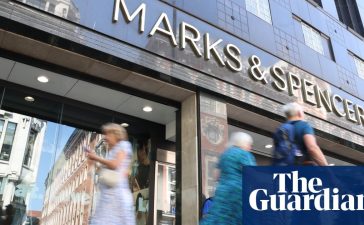NatWest chief executive Alison Rose has backed down in a spat with the House of Commons Treasury select committee and agreed to attend a hearing next week after initially saying she was “too busy”.
Rose, who runs one of the UK’s largest consumer lenders, had told MPs that she was unable to appear because she was preparing for its annual results the following week, the Financial Times reported yesterday. She had even rebuffed a personal appeal from committee chair Harriett Baldwin.
However, after public pressure from MPs on the committee, her own board and a second phone call with Baldwin, Rose backed down, according to people familiar with the matter. David Lindberg, head of NatWest’s retail bank, will no longer be sent in her place.
“Following further discussions with the Treasury committee on the vital issues at hand, Alison Rose will be attending next week’s committee hearing,” NatWest said in a statement on Thursday.
Baldwin had also been keen for Rose to attend to avoid an all-male panel.
Rose, who was made a dame in the new year’s honours list, has run the state-backed bank since November 2019 and was paid £3.6mn in 2021.
The government still owns 46 per cent of NatWest’s shares after its bailout during the financial crisis, when it was known as Royal Bank of Scotland.
The hearing on Tuesday promises to be challenging for Rose and three other executives from the country’s biggest high street banks: Charlie Nunn, Lloyds Banking Group chief executive; Ian Stuart, CEO of HSBC’s UK bank; and Matt Hammerstein, who is taking the place of Barclays boss CS Venkatakrishnan, who is undergoing treatment for cancer.
MPs will question the bankers on why they have failed to pass on benefits from rising interest rates to ordinary savers, while increasing borrowing costs on mortgages and personal and corporate loans.
Politicians say they have been “inundated” with complaints from their constituents about the issue.
Banks have been reporting substantial increases in their profits due to a windfall from interest rate rises. On Thursday, The Bank of England increased the base rate by half a percentage point to a 15-year high of 4 per cent.
This has meant that lenders have seen a dramatic improvement in their net interest margins, the difference between what they pay for deposits and what they earn from lending.
NatWest has increased the rate on its basic savings account from 0.01 per cent in December 2021 to 0.65 per cent now. Similarly, Barclays, Lloyds and HSBC have set them at 0.55 per cent, 0.6 per cent and 0.65 per cent, respectively.
By contrast, the average interest on a two-year fixed-rate mortgage has more than doubled to 5.44 per cent, Moneyfacts data show, compared to 2.44 per cent a year ago.
“MPs will ask why these [savings] rates are so low, and whether banks can be doing more to advise customers on how to arrange their funds to maximise the return they receive,” Baldwin said in a statement.
“The committee may explore whether banks are boosting their profits by increasing the gap between the interest paid out to savers and the interest paid in by borrowers.”
Some banks with only an online presence in the UK have much more attractive savings rates. JPMorgan’s Chase UK is offering 2.7 per cent, while Goldman Sachs’s Marcus UK has 2.5 per cent for the first 12 months.










